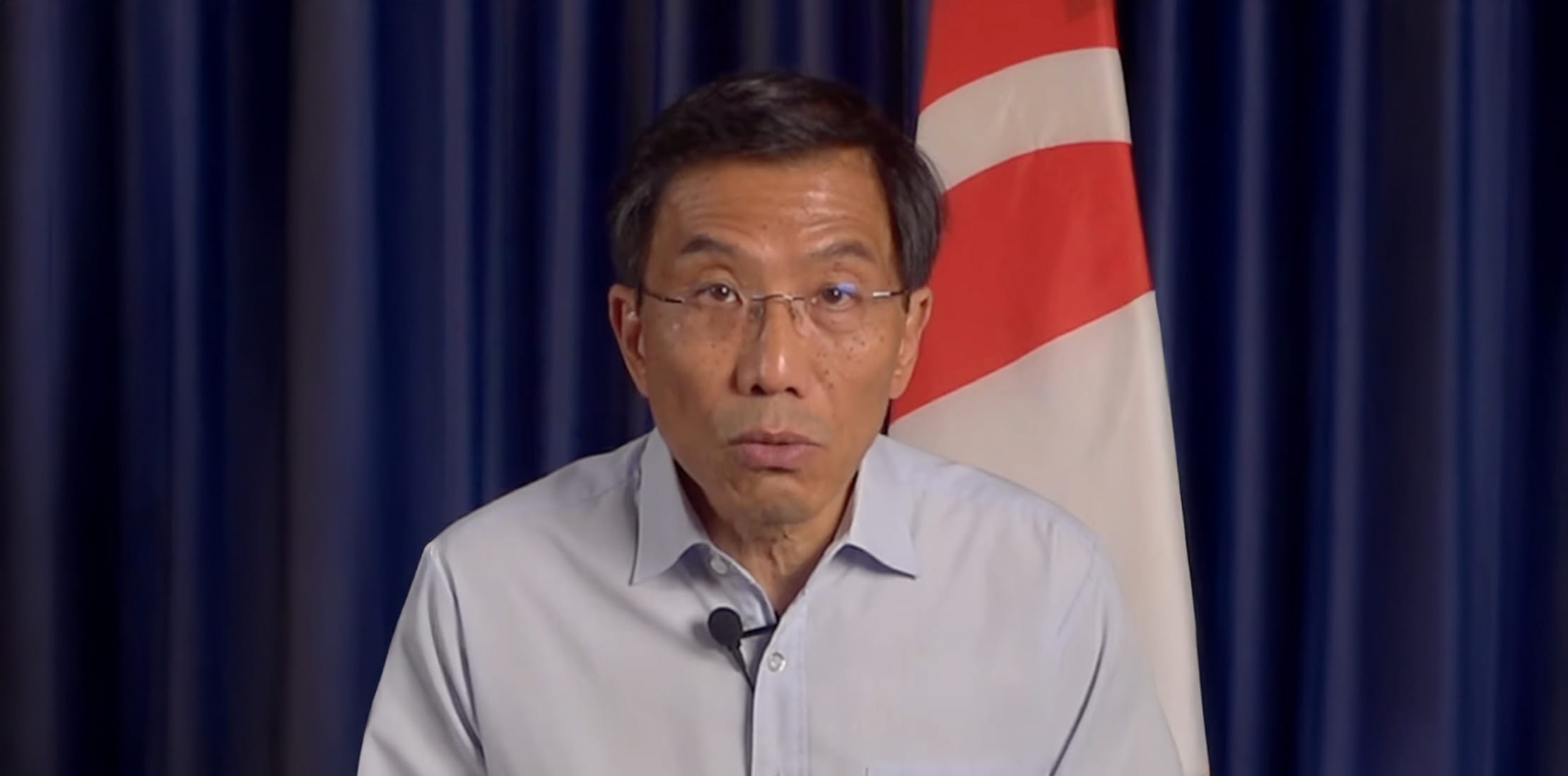Not to be forgotten, after yet another failed bid for even a single seat in the parliament, SDP's secretary-general has begun his next 5-year long campaign to try again, kicking it off by criticising the government on the issue of identity politics that min. Shanmugam lectured the opposition about last month.
Besides the Workers' Party, the minister mentioned SDP's Damanhuri Bin Abas who called on the Malay voters to turn out against the PAP, calling it "a question of Malay dignity".
Apparently Dr. Chee didn't like the ministerial reprimand very much, though failed to address his own colleague's comments, clearly believing the best form of defence was to attack.
He accused the PAP of politicising race by keeping it on national identity cards, by running a GRC scheme or supporting self-help groups for different ethnicities in Singapore, like Mendaki, CDAC or SINDA.
Why oh why does the PAP keep reminding us of our races! Its goal surely must be to foster suspicion between different ethnic groups that the government can exploit for political gain! The PAP is just like the British colonials who divided and conquered! – he alleges.
Identity politics vs. identity policies
One of the reasons I have tremendous respect for the PAP is its limitless pool of patience, which is required to deal with the political opposition in Singapore. It's not because they are so fierce, smart, clever or cunning, but because they are slow to understand anything and yet so self-righteous at the same time.
Chee Soon Juan can't even tell identity politics from identity policies and yet has the temerity to lecture the government.
Identity politics is the practice of using race, gender, class or religion to mobilise one group against the other, sowing division and conflict for political gain. Just like SDP's Damanhuri did by calling on the Malays to defend their dignity and vote the PAP out.
Identity policies, meanwhile, are policies which address the objective reality that there are differences between people in the society and that they require tailored solutions provided by authorities.
It doesn't matter how much Chee Soon Juan wants to parade his supposed colour-blindness if the society at large is not colour-blind at all – as evidenced by the persistent rants against CECA (which are just thinly-veiled bigotry against Indians), or even the past two years of the war in Gaza, which have greatly inflamed sentiments in the Malay community.
What's more, the threats to social cohesion aren't only rooted in ethnicity, which we might hope decades of coexistence would eventually blur, but continue to evolve – a phenomenon SDP's leader seems to be completely (and dangerously) oblivious to.
Six years ago retired diplomat Bilahari Kausikan identified three looming challenges to Singapore's social cohesion: Arabisation of Islam (through importation of foreign behaviours or customs), China's influence operations trying to impose a Chinese identity on Singapore (or at least Chinese Singaporeans) and Evangelical Christianity taking root in some corners of the society – all pulling different groups in Singapore in their own direction.
I would add Indian emergence as a superpower to the list, as the subcontinent is following a similar path to China. And just like many Chinese Singaporeans are feeling a sense of pride of their ethnicity due to Beijing's current standing in the world, Indian Singaporeans will acquire it too – even more eagerly so, perhaps, given that they are the smallest of the minorities in the society.
The real danger is when this pride creates a greater sense of belonging than Singapore does.
The solution to these issues is not to pretend they don't exist, as the wannabes outside the parliament would have you believe, but tailor policies in such a way that recognise and celebrate the very obvious differences under one, Singaporean umbrella.
Lucky Singapore
“Insanity is doing the same thing over and over and expecting different results" is a popular quote often attributed (however mistakenly) to Albert Einstein. But the misattribution doesn't change its fundamental accuracy – not learning from your mistakes time and time again is crazy.
Singaporeans, however, are fortunate that someone in their midst is there to show them what it looks like, providing a cautionary tale of lifelong failure to children and adults alike: Chee Soon Juan.
A serial loser, who has failed to win a single electoral campaign in his over 30 years as the SDP leader, Dr. Chee clearly lacks a mirror at home or an honest friend who would advise him to change his ways.
At 63 he finally came close to capturing the "best loser" NCMP seat – though ultimately lost i.a. to WP's 33-year old Andre Low, who had a better showing against former general, minister and NTUC's secretary-general Ng Chee Meng than Chee had against a relatively little known Poh Li San, who debuted in 2020 and only ran her first SMC campaign this year.
This must have stung quite badly.
Imagine being pipped to a seat by a WP rookie while you couldn't defeat a PAP backbencher even after 32 years in charge of your own party. Ouch!
But I have no sympathy for CSJ as he keeps sounding like a broken record, repeating the same old theories about evil, anti-democratic, divisive PAP, even though his narrative has been rejected by Singaporeans themselves – in seven elections over more than three decades.
How do you not learn anything from this?
And now he is trying to assume a position of some moral authority just a few months after Singaporeans told him and his people "no" again.
Though it would be unfair to say that his political career has had no positive influence on Singapore. It's a regular and very public reminder of how little you can accomplish in 60+ years if you refuse to learn and improve. And that there's a difference between perseverance and simply being stubborn.





